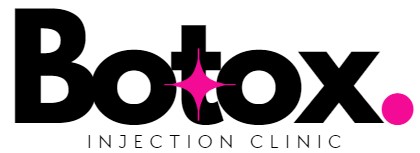What You Need to Know About Botox and Pregnancy: Insights for First Trimester Moms
As a first trimester mom, the excitement and anticipation of welcoming a new member into your family may be intertwined with a range of health and beauty concerns. One such concern might be related to cosmetic procedures, particularly Botox. With a plethora of information available about Botox and its safety, it’s important to understand the implications of its use during pregnancy, specifically in the first trimester.
Understanding Botox
Botox, or Botulinum toxin type A, is a neurotoxic protein that is commonly used for cosmetic purposes to reduce the appearance of wrinkles and fine lines. It works by temporarily paralyzing muscles in the injected area, providing a smoother complexion. Additionally, it has several medical applications, including treatment for migraines, excessive sweating, and certain muscular disorders.
The Safety Concerns
Currently, there is limited research regarding the safety of Botox during pregnancy, particularly in the first trimester when fetal development is at its most critical stage. The primary reason for caution lies in the lack of sufficient human studies examining the long-term effects of Botox on fetal development. Most of the knowledge surrounding Botox safety comes from animal studies and observational data, which can be difficult to generalize to human pregnancies.
The general consensus among healthcare providers is to err on the side of caution. Many recommend avoiding Botox during pregnancy due to potential risks associated with neurotoxins, even though no definitive evidence suggests that Botox causes harm to the baby when used in moderation. The use of any cosmetic treatments can also vary greatly from one individual to another, making personalized medical guidance invaluable.
Recommendations for First Trimester Moms
-
Consult Your Healthcare Provider: If you’re considering or have previously used Botox, it’s essential to discuss it with your obstetrician or healthcare provider. They can give you tailored advice based on your medical history and current situation.
-
Delay Cosmetic Procedures: If you are currently pregnant or planning to become pregnant soon, it may be wise to postpone Botox treatments until after you have given birth and finished breastfeeding. This precaution helps eliminate any uncertainty regarding potential risks.
-
Focus on Natural Remedies: Many women find that during pregnancy, their skin may change due to hormonal fluctuations. Embrace the natural changes by exploring pregnancy-safe skincare products and natural remedies for common skin concerns, such as dryness or pregnancy-related acne.
-
Stay Informed: It’s essential to keep up with ongoing research about cosmetic treatments and pregnancy. Scientific understanding continues to evolve, and new findings may provide valuable insights into the safety of treatments like Botox.
- Consider the Emotional Aspect: Pregnancy can be a time filled with emotional changes and body image concerns. It’s normal to have insecurities, but taking this period to embrace your body’s changes and focus on self-care can be empowering. Invest time in activities that make you feel good, both physically and mentally.
Conclusion
While the allure of Botox may be enticing, especially for first trimester moms navigating the myriad of changes that come with pregnancy, safety should always come first. Given the current lack of conclusive evidence supporting the safety of Botox during pregnancy, it is advisable to proceed with caution. Always consult your healthcare provider for guidance tailored to your unique circumstances, and consider prioritizing other methods of skincare and self-care during this important time for you and your baby.
Ultimately, pregnancy is a journey that deserves patience and care. Embracing natural beauty during this transformative time can lead to a more profound sense of connection and appreciation for your changing body.


